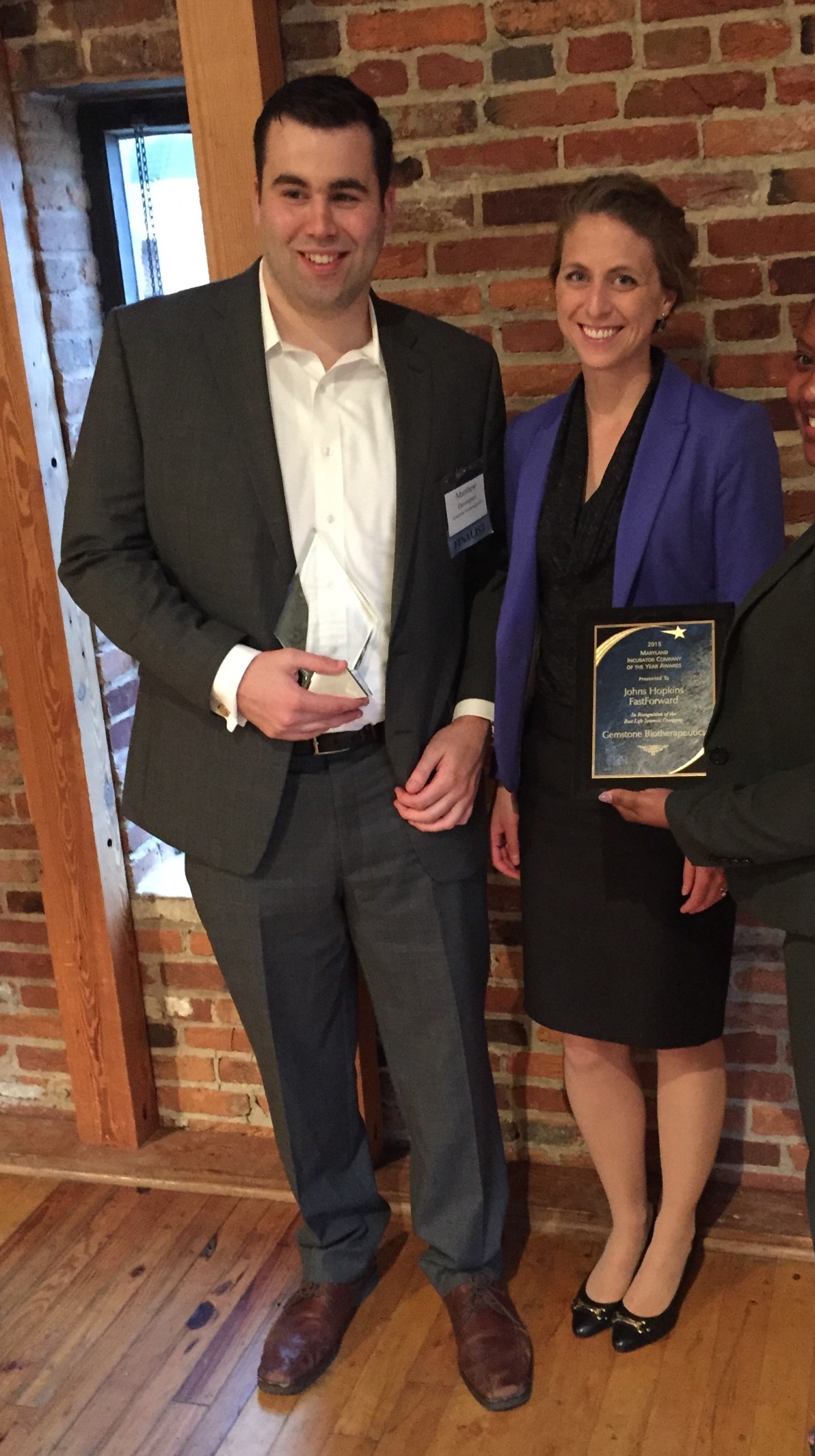A gel being developed in the lab at Johns Hopkins University is designed to make all signs of wounds disappear.
Gemstone Biotherapeutics, which focuses on wound care, grew out of the research of Hopkins engineering professor Sharon Gerecht. The winner of Hopkins’ first-ever President’s Frontier Award, Gerecht’s work is focused on tissue repair.
The company’s first product is a hydrogel that’s designed to heal wounds, like third-degree burns. Treatment with the synthetic product stimulates blood vessels to form around the wound. Skin then grows back, and treatment with the product leads to the body to producing higher-than-normal amounts of proteins like collagen and elastin to prevent scarring.
(Interestingly, a Brooklyn startup, Suneris, is pursuing a similar healing gel.)
Gemstone CEO George Davis said the fact that the product is synthetic — or made through chemical processes — sets it apart. Most wound care treatments involve using live cells, and end up being very expensive.
Studies are showing that it works on animals. This week, researchers released the results of a study in the journal Nature that applied the product on pigs, which followed a study on mice.
“Pigs happen to have skin much closer to human skin than mice,” Davis said.

Each pig wound treated with Gemstone’s product closed fully within two weeks. When using other products used in the study, only 14 percent of the wounds healed in the same complete way.
“Currently available skin grafts and skin substitutes for healing following third-degree burn injuries are fraught with complications, often resulting in long-term physical and psychological sequelae,” the study’s abstract states.
A synthetic product like Gemstone’s would “provide an off-the-shelf, non-immunogenic strategy to improve clinical care,” the abstract states. Gemstone funded the study, and Gerecht is a co-author.
So far, the company has raised $2.45 million to fund the work. Gamma 3, the venture firm where Davis is a partner, put in a total of $1.3 million of that.
“We’re pretty well funded to get us through these initial big events,” he said.
Davis and his Gamma 3 business partner David Oros founded the company in 2013. With data from that study in hand, the company is looking ahead to submitting for regulatory approval in the fall, which would be followed by human trials early next year. On that timeline, a product could be out by the middle of 2016. Though it has shown promise in burns, the company hasn’t decided what type of wound the first product would address.
The close of the $2.45 million seed round came on the heels of a Maryland Incubator Company of the Year award in the life sciences category.
The company has three employees in addition to Davis, all of whom are Hopkins alums. Gemstone currently has offices at Hopkins’ FastForward incubator on the Homewood campus, and rents lab space at the university’s FastForward East incubator in East Baltimore. Soon, the offices will relocate to South Baltimore. But the company will keep the lab space, which Davis said is affordable and hard to come by.
“To build that out it’s really, really expensive,” Davis said of lab space. “I was thrilled that Hopkins put that new facility in there.”







